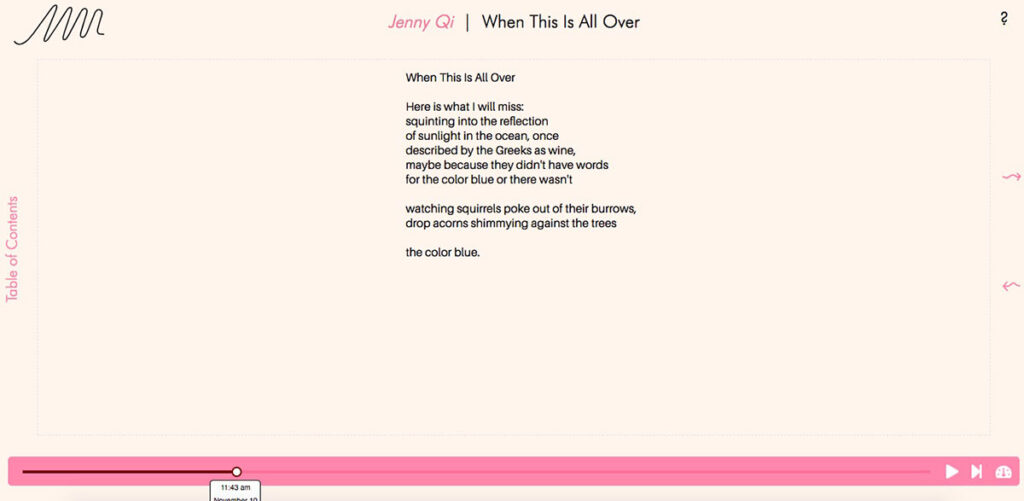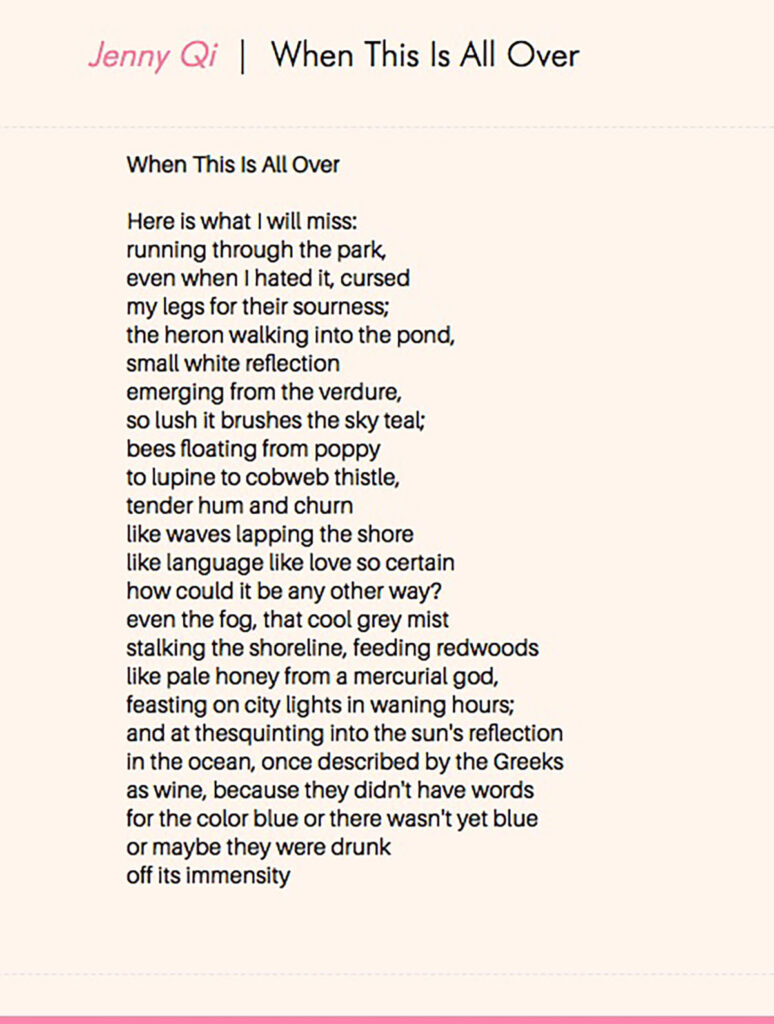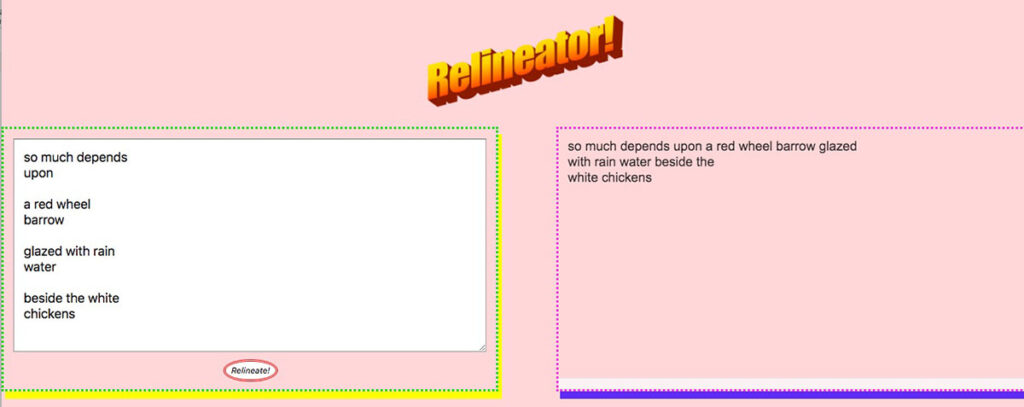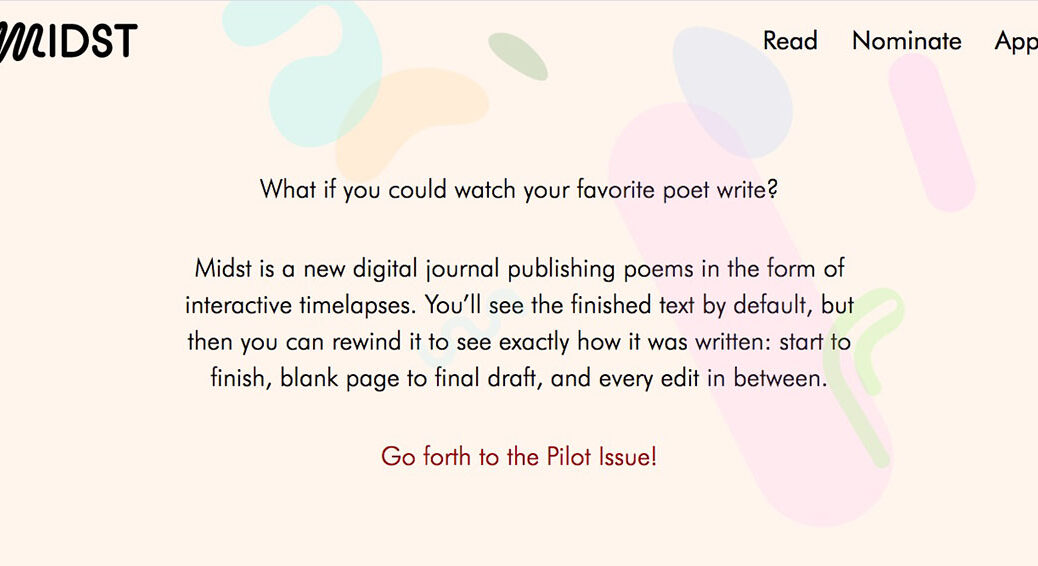Read, hot & digitized: Librarians and the digital scholarship they love — In this series, librarians from the Libraries’ Arts, Humanities and Global Studies Engagement Team briefly present, explore and critique existing examples of digital scholarship to encourage and inspire critical reflection of and future creative contributions to the growing fields of digital scholarship.
A poem in its printed form can feel complete and final. What I have learned, though, about poetry as both a reader and writer is that it is never linear. I don’t usually read a book of poems from start to finish – I jump around the book, pull phrases here and there. Writing poetry is even more complicated. A poem may start on a scrap of paper or in the Notes app on my phone. I may rewrite it by hand, then type it out again on my laptop. Drafting is never done in one sitting.
While every writer has their own process, I suspect many poets will admit to a similarly messy approach to drafting. And what if you could witness that process in real time? Poet, artist, and UT MFA student Annelyse Gelman and her collaborator, software programmer Jason Gillis-Grier, seek to answer that question through their delightful new poetry journal Midst.
Midst, which launched its inaugural issue in December 2019, provides readers a time-lapse view of a poem’s drafting process. Readers can watch the entire process from start to finish, or move around the timeline by rewinding or fast-forwarding. Each version of the poem is time-stamped, demonstrating that poems do not just magically appear but rather are the product of weeks, or even months, of work. This peek into the lengthy process of editing is intentional. Gelman and Gillis-Grier state on the journal’s website that they hope that Midst will demystify poetry and make it more accessible by showing the reader the writing process.


Gelman and Gillis-Grier have plans to expand the project with the Midst app, which will allow poets to capture their drafting process and then submit their time-lapse poem to the journal. Right now, featured writers are nominated and invited to submit versions, but with the app, they can open up the journal to a wider audience of writers and readers directly.
And Gelman and Gillis-Grier haven’t limited their creative poetry projects to just Midst. They also recently debuted the web app Relineator, in collaboration with UT English graduate student Zoe Bursztajn-Illingworth and the UT Digital Writing & Research Lab. Relineator allows poets and students to enter poems and see them reformatted with new line breaks.

April is National Poetry Month. While this year’s celebration is marked with a more somber tone due to the global pandemic, it also feels fitting to enjoy poetry from home through experimental, interactive projects like Midst and Relineator. If this has inspired you to further explore poetry, April is the best time of year to do it! Take a look at this curated selection of poetry ebooks on the UT Poetry Center’s guide. Once our print collections open again, you can find Annelyse Gelman’s book Everyone I Love is a Stranger to Someone and many other great collections of contemporary poetry at the Poetry Center’s physical location in the Perry-Castañeda Library.


